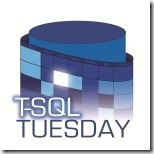In the centenary edition of the monthly blogging party that is T-SQL Tuesday, Adam Machanic asks us to look forward 100 months and speculate what the world of SQL Server will look like:
http://dataeducation.com/invitation-t-sql-tuesday-100-looking-forward-100-months/
For Adam’s challenge, we’re looking forward just over 8 years. If we look back that amount then we’re looking at SQL Server 2008, with R2 coming out soon.
So how much has changed in the that time? Well, quite a lot, but it would be fair to say that more has stayed the same than has changed. For those of us who sit mainly in the data platform (rather than BI or Data Science) space, then most of what we do is the same, same T-SQL, same types of performance problems, same arguments with developers over database design, scalabilty and good practice.
What we have got though is enhanced tooling and improved performance. I love Query Store, I love the stuff starting to come out with adaptive query plans, even the automatic tuning features are looking good. I love that improved tooling means we can get away from the drudge tasks and concentrate on the clever stuff. Technologies like Always Encrypted give us great new ways to protect our data. The growth of the cloud offerings in Paas with Azure SQLDB and amazon RDS offer great possibilities.
Of course most people are still in the past with SQL Server and don’t get to use any of this, according to Spotlight, a quarter of SQL servers are still 2008 versions ( https://www.spotlightessentials.com/public/collectiveiq ), and I bet the truth is much bigger than that if you include all the severs that no-one bothers to monitor.
So my biggest prediction for 2026 is that DBAs will finally have the go-ahead from their companies to upgrade to the versions of SQL that are current now and start using this stuff!
Some other random predictions:
Just as it didn’t when it was called Data Mining, Machine Learning won’t have solved all the world’s problems. It’ll be re-branded something like “Deep Intelligence” and be hailed as the new saviour going forward.
Similarly, Big Data will have been due for a re-brand and re-hype for a while – err.. “Bigger Data” anyone?
It turned out no-one ended up getting the really big fines under GDPR, so companies have relaxed about abusing your data and storing backups on open cloud drives.
Implementations based on the successor to No-SQL, “No-Data” have run into problems. It becomes reluctantly accepted that data is useful in some contexts and the movement is relabelled “Not-only-data”.
The DBA role is dead – various people announce.
Many data lakes rotted and festered over time, becoming swamps. Cost of calling in the clean-up teams was too much so they just got concreted over.
But best, of all, Microsoft will have changed the default settings for a parallelism, and we’ll know what part of our string or binary data would have been truncated. Hallejulah! All hail our robot overlords! Where’s my Soylent Green?!



